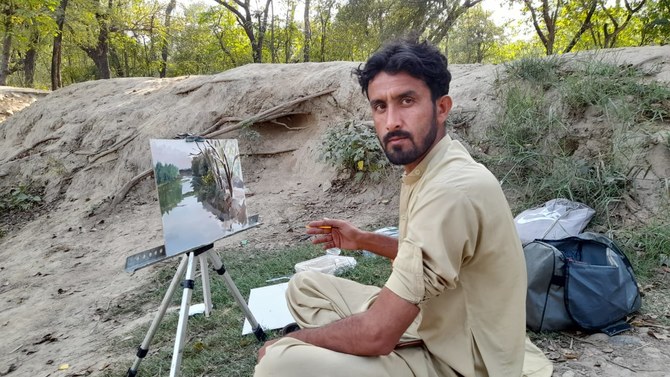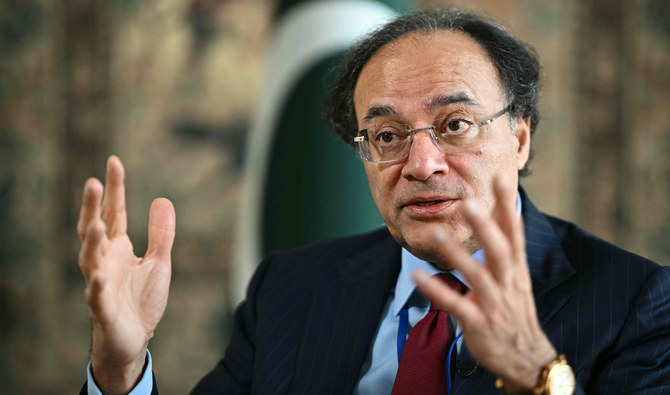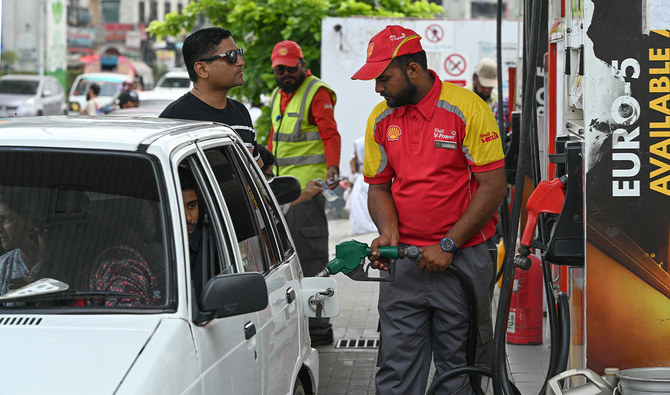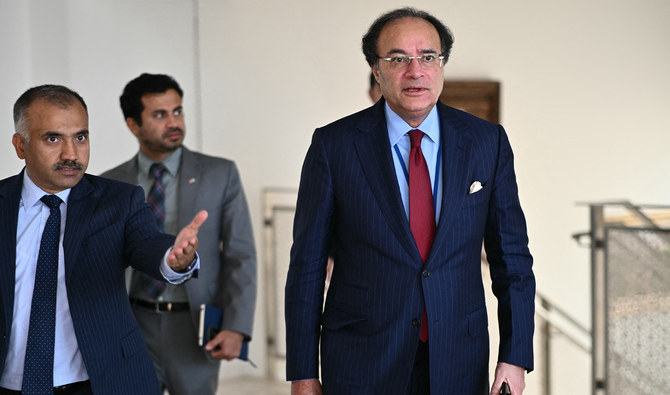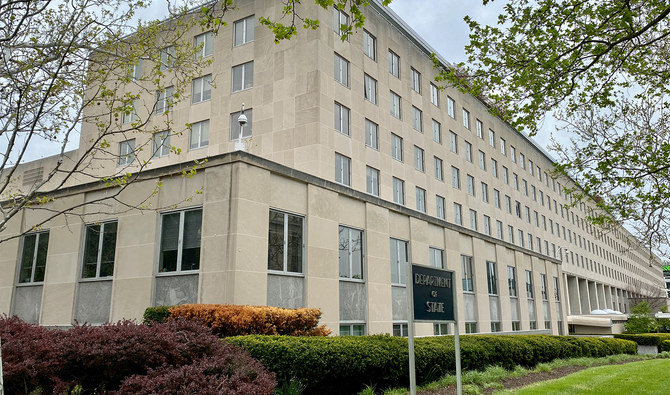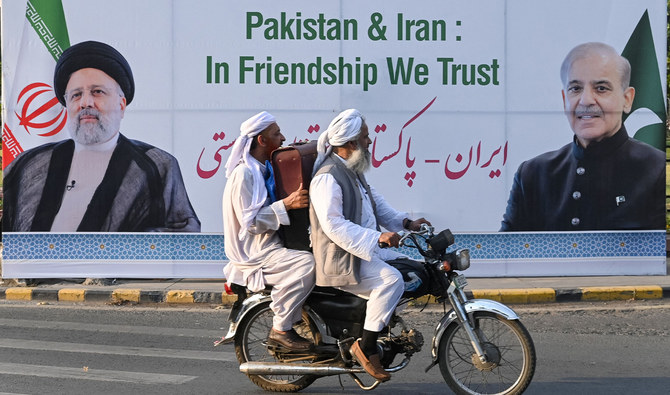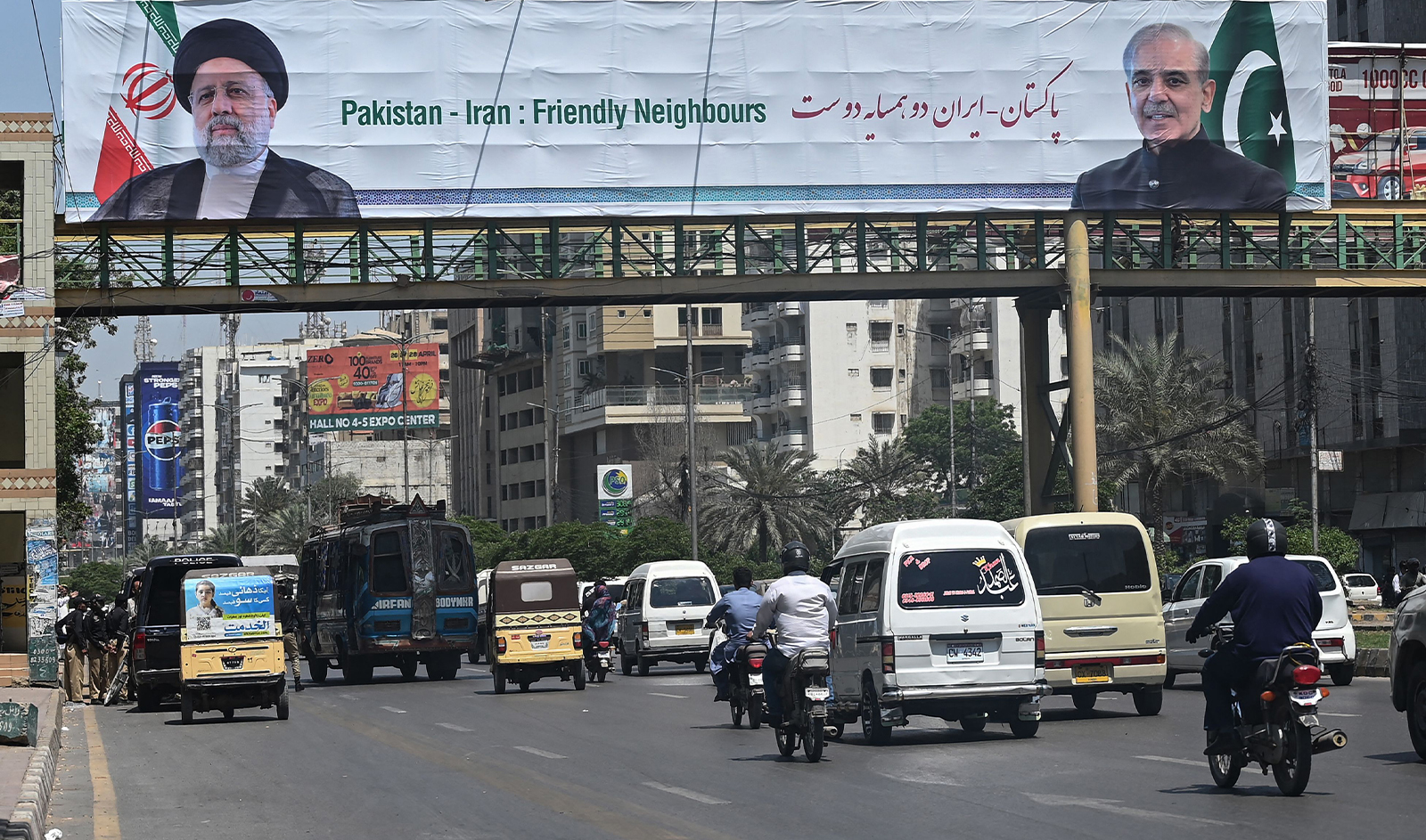TANK: Safeer Khan grew up poor in a tiny settlement of mud houses in Pakistan’s Tank district of Khyber Pakhtunkhwa province, which borders Afghanistan and bears the deep scars of decades of militant violence.
With his family unable to afford his education, Khan was forced to drop out of high school and had few prospects for a future.
But art saved his life, says the 26-year-old man who is now a landscape painter and recently found social media fame.
“Safeer was in a miserable condition when he first met me,” Khan’s art teacher Ajab Khan told Arab News. “He had dropped out of school due to financial constraints, but I encouraged him to continue his education since I could see immense potential in him. I knew he was highly imaginative.”
Khan first began to produce commercial images and painted signboards until 2011. Now, under the tutelage of his teacher, he focuses on landscapes, inspired by the natural beauty and culture of Pakistan’s mountainous tribal regions. In 2018, he won a prize at a ceremony arranged by the Abasin Arts Council in Peshawar. He has also won prizes in similar competitions in cities like Faisalabad and Dera Ismail Khan.
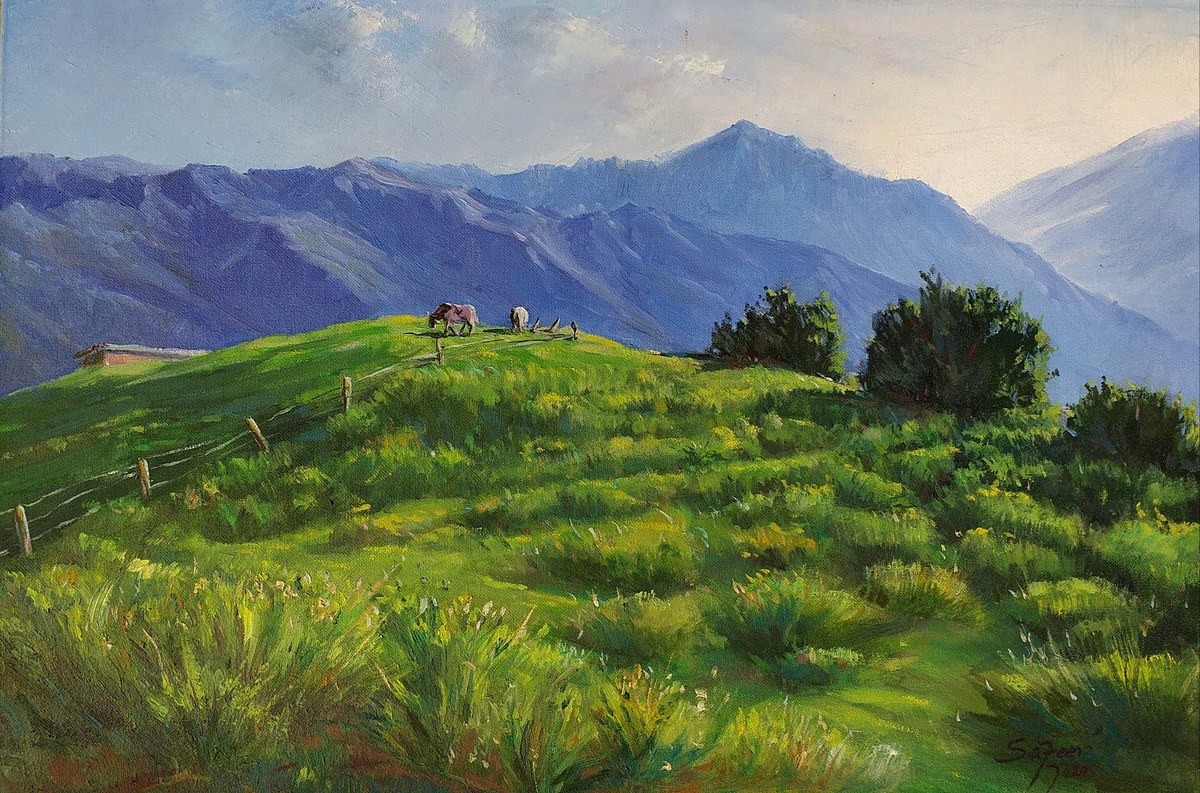
An undated photograph of a landscape painting by artist Safeer Khan shows animals in a meadow in South Waziristan tribal district, Pakistan. (Photo courtesy: Safeer Khan)
“My ambition is to exhibit my work in museums and art galleries in Islamabad and abroad,” said Khan, who now has a master’s degree in the Pashto language and a diploma in drawing. “However, I can’t make that happen on my own and need government support.”
“I’ve embarked on this journey, though I know my destination is far away,” he added.
Khan’s work betrays little of the hardships and violence of the region from where he belongs.
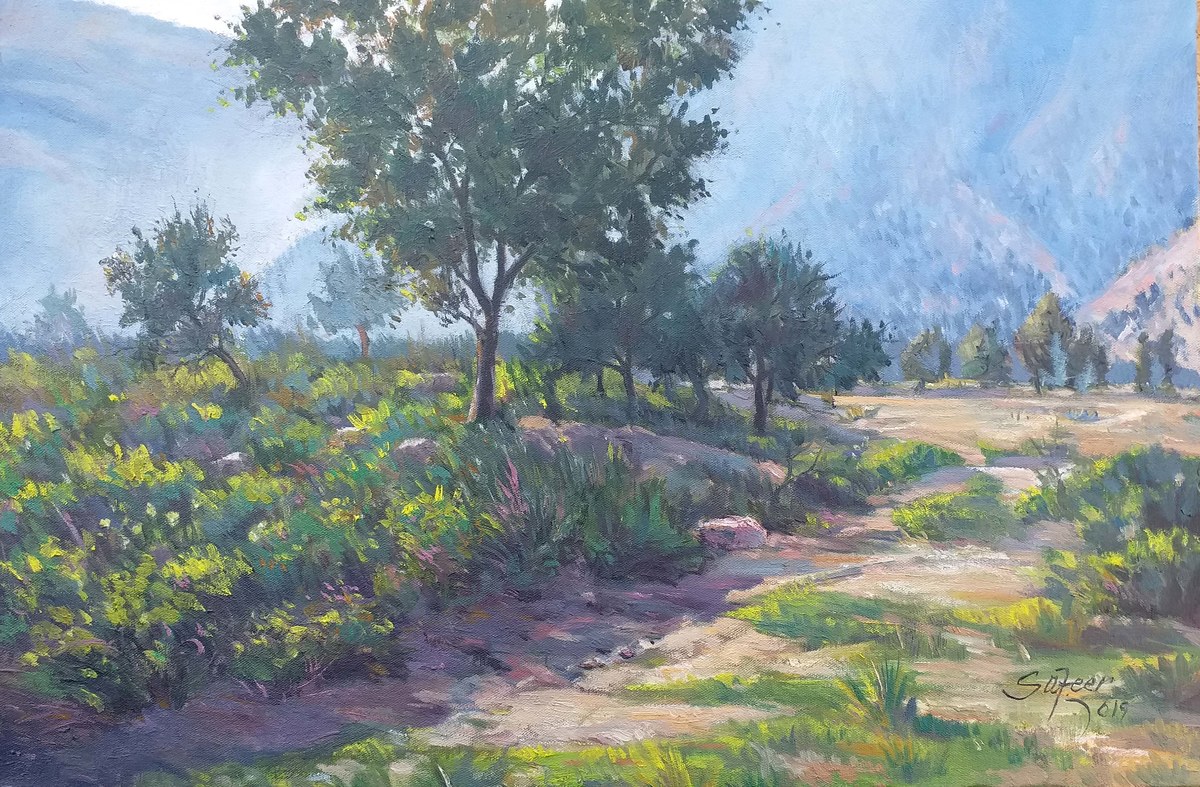
An undated photograph of a landscape painting produced by artist Safeer Khan shows South Waziristan’s natural beauty. (Photo courtesy: Safeer Khan)
Inspired by South African landscapist Anton Benzon, popular for his bold brushstrokes and passion for strong colors, the young Pakistani artist too has his own way of looking at the world around him, and mostly paints calm and serene scenes from pastoral and countryside life in his home region.
Khan’s teacher Ajab said his student loved his land, people and culture.
“All these ingredients are immensely important for an artist,” he added. “However, his future will be bleak if he continues to live in his native town since no one around him will have any appreciation for his talent.”







